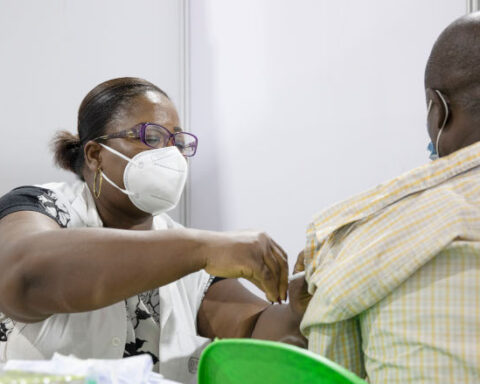Banks in central and south eastern Europe (CESEE) have so far proved resilient to the coronavirus pandemic, the Vienna Initiative says: “The Covid-19 cr
isis has not yet fully materialised into a significant worsening of banks’ asset quality as initially feared”, the most recent report on non-performing loans (NPLs) published today states. However, many economies “remain fragile and significant disparities in performance can be observed.”
According to the “NPL monitor for the CESEE region, H2/2021”, the NPL ratio in 17 countries covered by the Vienna Initiative stood at 3.5 per cent as of 30 June 2021, compared to 2.3 per cent for the European Union/European Economic Area. This was well below the 5 per cent threshold defined by the European Banking Authority for high NPLs. The region’s overall coverage ratio also remained stable since 2018 and stood at 64.5 per cent as of 30 June 2021.
At regional level, NPL volumes fell 7.8 per cent in the 12 months from Q2/2020 (ending 30 June 2020) to Q2/2021 (ending 30 June 2021). In relative terms, the decline in NPL stocks was most significant in Hungary, North Macedonia and Estonia where they fell 28 per cent, 23 per cent and 22 per cent respectively during the period. The largest contributor to the decline in absolute terms was Poland, where the stock of NPLs declined by almost €2 billion or 14.6 per cent.
The declining trend of NPLs was “in large parts due to the success of measures implemented to support borrowers, banks, and the economies, such as payment moratoria and public guarantee schemes”, the report says. However, most measures have now expired or about to end in the coming months. The effect of the crisis might therefore still be felt, the Vienna Initiative warns. In addition, the recent surge of infection rates has again made the introduction of drastic restrictions to protect public health a possibility.
Before this background the report finds that firms’ resilience and their ability to adapt to the pandemic were shaped by their pre-Covid-19 characteristics. Companies less likely to go bankrupt before the crisis have shown to be significantly more able to adapt, notably by digitalising their services. Companies were severely impacted, but able to avoid bankruptcy so far. “This suggests that policies mitigating the Covid-19 impact have been instrumental in keeping businesses afloat”, the report says.
The European Bank Coordination (Vienna) Initiative is a framework for safeguarding the financial stability of emerging Europe. The NPL monitor is a semi-annual publication reviewing the latest trends in banks’ asset quality and includes Albania, Bosnia and Herzegovina, Bulgaria, Croatia, Czech Republic, Estonia, Hungary, Kosovo, Latvia, Lithuania, Montenegro, North Macedonia, Poland, Romania, Serbia, Slovak Republic and Slovenia.






